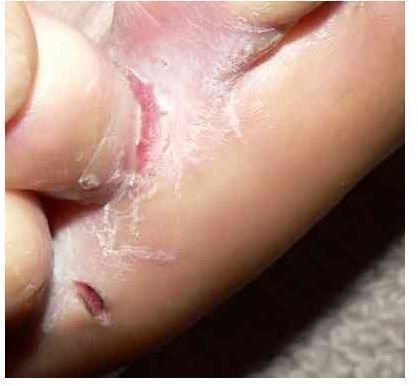What Makes People Get Fungal Infections? How Genes Could One Day Tackle Skin Fungal Infections, Fungal Infections on the Face and Others
Fungal Infections
Fungi are all around us - in the air we breathe, in water, on plants, and in the soil. They also live on and inside our bodies. Many of those that hitch a ride with us are completely harmless, but some can cause infection.
There are many different types of unpleasant fungal infections that afflict humans. For example; -
- Candida
- Oral thrush
- Athlete’s foot
- Ringworm
- Skin fungal infections
- Fungal nail infections
Why do People Get Fungal Infections?
There are a number of reasons that can contribute to a person getting a fungal infection and these include having a depressed immune system, poor circulation, prolonged use of antibiotics, and coming into contact with contaminated water. The latter example is a particular problem in gyms, swimming pools and locker rooms where people can pick up the fungus Trichophyton which causes athlete’s foot.
It is possible that genetic mutations may put individuals at increased risk of contracting a fungal infection. That’s the conclusion of researchers from University College London (UCL) and Radboud University in the Netherlands. They produced two separate studies that appeared in the New England Journal of Medicine in October 2009.
Fungus Research
The UCL researchers studied patients from multiple generations of a large family. These people had been afflicted by recurrent fungal infections, which proved to be fatal in some cases. By studying their DNA the researchers found that there was a common recurrent mutation in a gene called CARD9. The Radboud team found a mutation in gene called Dectin-1 and this was linked to an increased susceptibility to vaginal infections by Candida.
CARD9 codes for a protein that plays a role in cell death and the protein product of Dectin-1 is involved in macrophage recognition and destruction of fungi. When both these genes are functioning normally Dectin-1 senses the presence of fungi and prompts the immune cells to send signals and mount a response.
One of the outcomes of this is that some signals reach CARD9 which sets off a molecular response to protect against these invading microbes. The scientists discovered that if there is a mutation in any one of these genes then the body struggles to control the fungi. In this instance it fails to combat Candida and infections take place.
Further proof of this was obtained from animal models where mice lacking either of these genes were susceptible to fungal infections. Mice response to fungal infections had previously been studied and known, and the mechanisms are the same in humans. This means they have both been highly conserved throughout evolution.
All this research should pave the way for the development of novel therapeutics to boost host response where the genes are failing.
